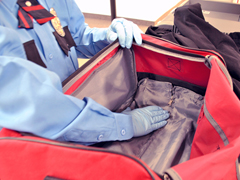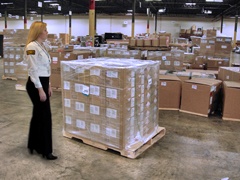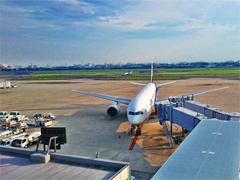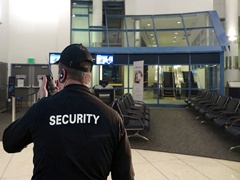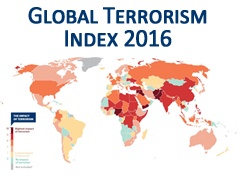Concealment is the act of hiding or preventing something from being known. It happens more often than we’d like, ranging from minor infractions to major threats to our security. The unknown variable of who may or may not try to sneak items passed the checkpoint constantly requires security personnel to be on guard.
Fortunately, personnel are trained to detect anomalies and pick up on various concealment methods used by these offenders. Let’s discuss concealment and some creative tactics observed in the industry that all checkpoint staff should be aware of.
Read More
Topics:
Aviation Security,
General Security,
Cargo Security,
Ports & Borders,
Critical Infrastructure,
Transportation
Air cargo has always been a target for those wanting to cause harm to the transport industry. One of the ways they’ve done that is by concealing explosive devices into air freight on both cargo and passenger aircraft. Unfortunately, successful attempts have led to catastrophic consequences including severe damage to airline assets, disruption of the industry, and loss of life.
That’s why air cargo screening remains an imperative step in maintaining security. Without it, the industry would be incredibly vulnerable to explosive threats. Proper diligence must be exercised to protect the air cargo industry, the people working in it, and those utilizing its services.
Read More
Topics:
Aviation Security,
Cargo Security,
Security Threats,
Transportation
A new year means another year of security training. The thought of recurrent training usually re-enters the minds of training managers and administrators at this time of year. Sometimes seen as an overwhelming process, the anticipation of rolling out another year of security training to personnel can be stressful.
It’s not always easy to coordinate but if you know the basics and have the right tools, it can be much easier than anticipated. And when the time comes, you’ll be able to handle a compliance audit like a pro. First, let’s get down to discussing the basics of recurrent security training.
Read More
Topics:
Audit Preparation & Compliance,
Security Training,
Aviation Security,
Training & Development,
Cargo Security
Governments are the last line of defense when it comes to shaping policy concerning aviation security. Since there is no overarching global regulator to oversee all governments in every country, the handling of aviation security policy ultimately comes down to individual governments themselves.
As a result, the aviation industry faces challenges related to individual governments and how critical aviation security issues are handled by each. Industry desperately needs governments to overcome these obstacles in order to have a more secure and effective aviation market. Let’s discuss some governmental challenges in the aviation sector.
Read More
Topics:
Aviation Security,
Cargo Security,
Transportation
What does it mean to have strong aviation security culture? A strong aviation security culture is one in which security is a top priority for all staff. It means that security can never rest at the back of our minds; it must constantly be at the forefront. It also means that security cannot be an afterthought; it must be approached with a proactive mindset.
If we lose sight of the importance of aviation security for a moment, we risk becoming vulnerable to the imminent dangers that constantly pressure our industry. Security is everybody’s business. So, what can you do to build a strong aviation security culture within your company?
Read More
Topics:
Security Training,
Aviation Security,
Training & Development,
Cargo Security
On the morning of Tuesday 21 March, the United States announced an electronics ban on inbound direct flights from certain Middle East and North African countries and required nine airlines to comply within 96 hours. The United Kingdom released similar restrictions later that day affecting 14 airlines.
Both bans order airlines to prohibit passengers from bringing large electronics into the cabin of the aircraft, but to instead place them into checked baggage. Although there is no direct threat or plot authorities are aware of, US officials say it’s a move in response to terrorist organizations working to perfect techniques for hiding explosives in electronic devices. Let’s take a closer look into the aviation threat causing governments to implement bans.
Read More
Topics:
Aviation Security,
Cargo Security,
Security Threats,
Transportation,
Current Events
Released November 2016, the fourth edition of the Global Terrorism Index (GTI) generated by the Institute for Economics & Peace (IEP) continues to analyze key global terrorism trends and patterns for 163 countries. Raw data is derived from the Global Terrorism Database which is considered to be the most comprehensive dataset on terrorist activity, with over 150,000 terrorist incidents documented worldwide.
This most recent edition of the terrorism index puts an emphasis on a 16-year time frame beginning in 2000 through the end of 2015. As defined by the GTI, terrorism is “the threatened or actual use of illegal force and violence by a non-state actor to attain a political, economic, religious, or social goal through fear, coercion, or intimidation.” Here’s a summary of the latest global terrorism trends, facts, and figures.
Read More
Topics:
Aviation Security,
Trends,
General Security,
Cargo Security,
Security Threats
One of the primary weapons of choice for terrorists and lone wolf attackers has been the Improvised Explosive Device, or IED. These dangerous, homemade devices are typically constructed from common household items making them rather inexpensive to build. Nevertheless, IEDs can pack a powerful punch and have been known to cause an extraordinary amount of damage and loss of life.
Consequently, security checkpoint personnel must always be on high alert for the IED threat. If allowed to pass through a checkpoint, the device will certainly be used with malicious intent. At a fundamental core, security personnel must gain a basic understanding of improvised explosive devices and how they are constructed in order to recognize when one is presented before them.
Read More
Topics:
Aviation Security,
General Security,
Cargo Security,
Ports & Borders,
Critical Infrastructure,
Security Threats,
Transportation
If it seems as though terrorism has been on the rise these past few years, it has. Terror attacks have spread to more countries than ever and innocent, private citizens are increasingly becoming targets. When terrorism strikes, it undeniably leaves a lasting impact on the nation and its people.
In the third edition of the Global Terrorism Index for 2015, the Institute for Economics and Peace (IEP) collected data from the Global Terrorism Database to determine key global trends and patterns in terrorism over the past 15 years, with an emphasis on 2014. Let’s take a look at these global terrorism trends, facts, and figures.
Read More
Topics:
Aviation Security,
Trends,
General Security,
Cargo Security,
Security Threats
Whether you’ve realized it or not, X-ray security screeners exist everywhere. That’s because X-ray screening technology is present in so many industries. We can find X-ray screeners at airports, cargo facilities, courthouses, schools, correctional facilities, immigration agencies, special events, and more.
These X-ray operators work endlessly to protect the surrounding people and infrastructures from harm by inspecting belongings, packages, and goods flowing through. They are trained to detect contraband, weapons, explosive devices, and drugs. Every day, X-ray security screeners put themselves in potentially dangerous situations and risk their lives to protect us.
Read More
Topics:
Security Training,
Aviation Security,
General Security,
Cargo Security,
Ports & Borders,
Critical Infrastructure,
Transportation

